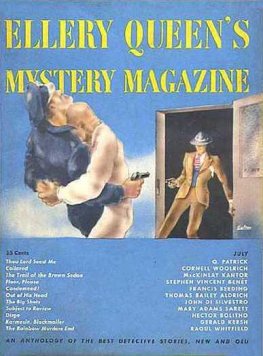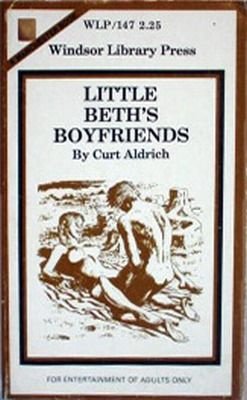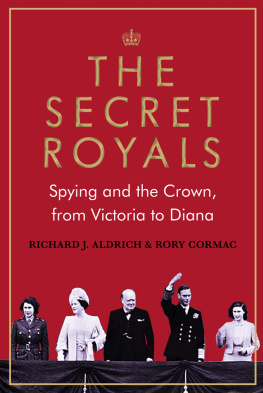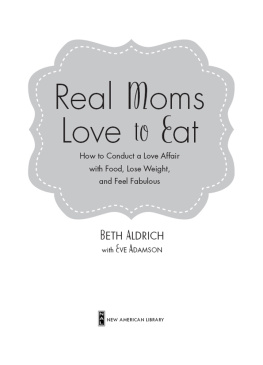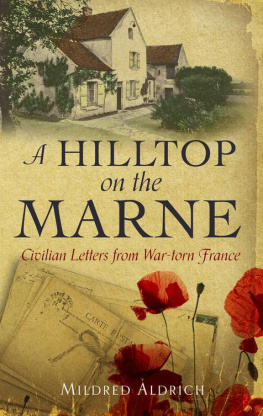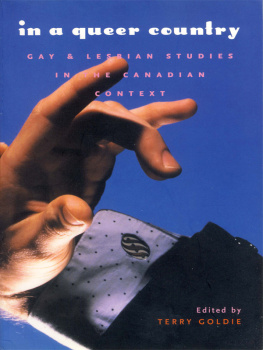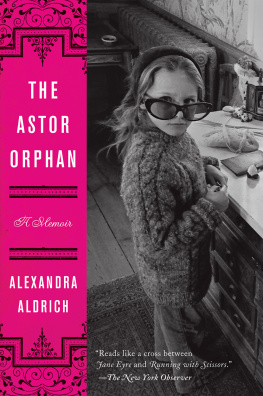A SALUTE TO ANN ALDRICH
If you were a lesbian in the 1950s, you were probably married, with children. Or solitary drudging in the hinterlands.... Could you be the only woman on the planet with tender feelings for other women? Were you evil? Cursed? Or merely sick?... And then a miracle happened. In the drug store, the train station, the bus stop, the newsstand, you came across a rack of pulp paperbacks. Among the cowboy tales, the cops-and-robbers, and the science fiction, there began to be books about lesbians. Suddenly, you had a name, an identity, and a community of unknown sisters....
Some of the books you read so eagerly, so secretly, were fictional romances, and even with their heartaches, they provided solace and erotic transport. But another genre appeared: factual reports about lesbian life in the big city, penned by someone who lived there and knew. Her name was Ann Aldrich, and two of her best-known booksWe Walk Alone and We, Too, Must Loveare now being reissued.
Aldrich told you what it was like to come out (joyful prospect!). She told you where lesbians in the know gatheredthe bars, the resorts, the restaurants. She told you what these women wore, how they talked, how they coped with intricate personal problems. You were amazed to discover that there were different lifestyles within the nascent lesbian community: high and low, butch and femme, uptown and low-down.
There were even men in the lives of many of them. How did that work? It was a veritable Michelin Guide. You were riveted to the page....
The effect on women was electric. From every corner of creation, they wrote wrenching letters of relief and gratitude. Some were saved from suicide, the only solution to their dilemma they could conceive. Aldrich herself was taken aback at the outpouring of emotion.
Ann Bannon,
author of Odd Girl Out and The Beebo Brinker Chronicles
July 2006

Other Works by Ann Aldrich:
We, Too, Must Love (1958)
Carol in a Thousand Cities (1960)
We Two Wont Last (1963)
Take a Lesbian to Lunch (1972)

Published by the Feminist Press at the City University of New York
The Graduate Center
365 Fifth Avenue
New York, NY 10016
www.feministpress.org
First Feminist Press Edition, 2006.
Copyright 1955 by Ann Aldrich
Introduction copyright 2006 by Marijane Meaker
Afterword copyright 2006 by Stephanie Foote
All rights reserved.
No part of this book may be reproduced or used, stored in any information retrieval system or transmitted in any form or by any means, electronic, mechanical, photocopying, recording, or otherwise without prior written permission from the Feminist Press at the City University of New York, except in the case of brief quotations embodied in critical articles and reviews.
Originally published by Fawcett Publications in 1955.
Library of Congress Cataloging-in-Publication Data
Aldrich, Ann, 1927 May 27-
We walk alone / Ann Aldrich ; introduction by Marijane Meaker ; afterword by Stephanie Foote. -- 1st Feminist press ed.
p. cm.
Prev. ed. entered under Marijane Meaker.
ISBN-13: 978-1-55861-933-3 (eBook)
1. Lesbians. 2. Lesbianism. I. Meaker, Marijane, 1927- We walk alone. II. Title.
HQ75.5.A28 2006
306.76'630973--dc22
2006021212
This publication was made possible, in part, through the support of Diane Bernard in honor of Joan R. Heller, Don Linn, and Dorothy Sander and Joyce Warshow.
Text design by Lisa Force
10 09 08 07 06 5 4 3 2 1
CONTENTS
Under the pseudonym Donald Webster Cory in 1951 Edward Sagarin wrote a groundbreaking examination of male homosexuality. He had originally thought of using the name Don Cory, a reverse of Corydon, the name of Andre Gides book written for young gay men. But Sagarins publisher thought the name too unusual, feared litigation, and convinced Sagarin to be Donald instead of Don and to add Webster as a middle name.
The Homosexual in America was an immediate success.
I was both impressed and inspired by the book. It was really a guide to the lifethe history, the laws, the books, the barseverything an emerging gay man needed to know.
It was not pertinent to lesbians. Male and female lives have always been so very different that political activists eventually insisted on not grouping us all under one banner. The correct usage became lesbians and gay men, instead of simple homosexuals.
After I read Corys masterpiece, I became determined to write a book like it, for lesbians. I had already flabbergasted Fawcett Publications, Gold Medal Books, when my little story of lesbianism in a college sorority outsold the paperback edition of Gods Little Acre, by Erskine Caldwell. The publishers had had no such expectations for that paperback, selling for 25 cents. My editor had even changed the name Sorority Girl to Spring Fire (1952), hoping to confuse the audience for James A. Micheners best-selling Fires of Spring, and perhaps pick up more sales.
This same editor, Dick Carroll, a sharp fellow from Hollywood, new to paperback publishing, was enthusiastic about the idea of writing a female version of Corys book. I had chosen the pseudonym Vin Packer for the Gold Medal Books, and to my surprise one of them had received a great Sunday New York Times review by crime critic Anthony Boucher. This was not a book about lesbians, but a suspense book, a fictional murder mystery.
I decided to continue to write books that could be reviewed, even in paperback. The crime field was best for this, and so I decided Vin Packer would remain a mystery/suspense writer.
Pseudonyms were common in those days for writers with a homosexual agenda. Some critics felt Gore Vidal had ruined his literary reputation when he wrote The City and the Pillar under his own name. It did not get a New York Times review, or any review in the usual media.
For my first venture into nonfiction journalism with lesbianism my subject matter, I though of the name Bianca Blye.
Dick Carroll said, No, no, NO! Do you want to be confused with Captain Bligh? We need a soft, all-American name, like that young man in the radio serial, Henry Aldrich.
Ann Aldrich, I suggested.
Thats perfect! said Dick.
I chose the title We Walk Alone. I wanted to suggest isolation and our stalwart nature. I wanted a simple, clear title. I never wanted the subtitle Gold Medal put on the cover, Through Lesbos Lonely Groves. But in those days, young writers had little to say about subtitles, cover copy, or cover art.
Such concerns seemed not to matter to the buyers of We Walk Alone. The important selling point was simply that this was a book about lesbians: true stories and facts. In the fifties it was impossible to find anything on the subject that wasnt intentionally pornographic. Certain straight men have always had a prurient interest in us.
Although there was no mention of Vin Packer on the cover, a little sales boost I wouldnt allow because I wanted to keep Packer identified with suspense, Ms. Aldrich did not need Ms. Packer. She did just fine for herself, selling millions of copies. Ms. Aldrich also got more mail from readers than any author at Fawcett Publications had ever received. Boxes of it were waiting for me whenever I went to see Dick to talk about the next book.
Next page

